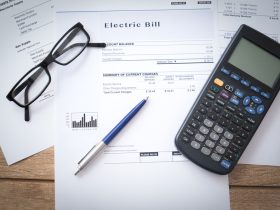Young people are experiencing increasing levels of debt, and those on low incomes were among those most affected by the problem, according to Aryza
Darlington and Teesside are among the places with the highest levels of personal debt in England, a report has revealed.
Young people are experiencing increasing levels of debt, and those on low incomes were among those most affected by the problem said Aryza, which carried out the research.
The financial management company analysed creditor records and found average debt nationally had increased from £15,924 at the start of the year to £17,823.04 in the third quarter.
In Teesside, average debt stood at £19,345, the second highest in England, while in Darlington it was £18,966, the fifth highest, the report found.
More than 3,000 people had to seek assistance from Darlington Citizen’s Advice last year because of problems with debt, the organisation said.
Helen Howson, chief executive of Darlington Citizen’s Advice, said those seeking help had a combined £1.89m of debt, with council tax, credit and store debts, and doorstep lending among the biggest issues. It’s an awful lot of money.
Responding to the report, Ms Howson said she was unsurprised. She said: We regularly see people who have very high levels of personal debt and are struggling with things like mortgage debt and rising living costs. There are issues around fuel poverty as well.
It’s starting to increase. We are seeing a spike with everything that is happening with gas and electricity companies, she said.
The Aryza report said a “perfect storm” of conditions was increasing pressure on the lower paid.
Colin Brown, chief executive, said: As people’s incomes decrease more are using credit to subsidise basic living expenses – with ‘credit’ listed as one of the most common reasons listed as ‘reason for financial difficulty’.
He said: One in five people struggling with their personal finances already owe money to utility companies, increasing prices for gas and electricity over the winter months and rising fuel and food costs look set to put many more people in a vulnerable position.







Leave a Reply